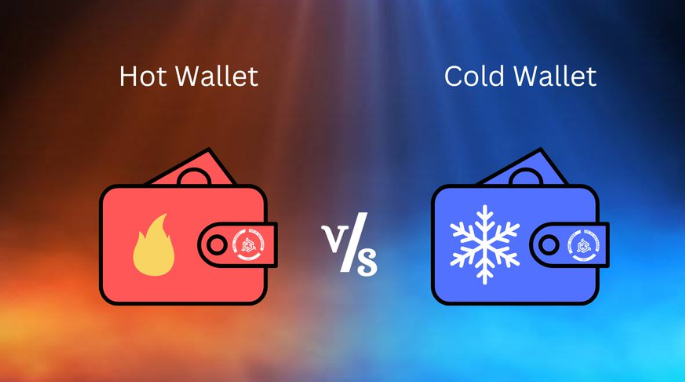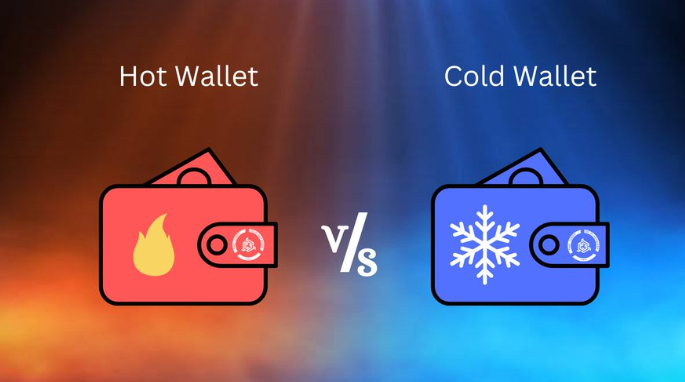In the thrilling yet often turbulent world of cryptocurrency, where fortunes can be made and lost in the blink of an eye, one fundamental aspect often takes a backseat until it’s too late: security. As digital assets continue to gain traction and value, the need for robust protection against a growing array of threats has never been more critical. This guide delves into the essential security practices that every crypto holder must understand and implement to safeguard their hard-earned digital wealth from malicious actors and unforeseen vulnerabilities.
Crypto Security Essentials: Protecting Your Digital Assets

Understanding the Landscape of Threats
The allure of digital assets, with their potential for high returns and decentralized nature, also makes them a prime target for cybercriminals. Unlike traditional financial systems with established regulatory frameworks and insurance, the crypto space often operates with less oversight, placing a greater onus on individuals to secure their own holdings. Understanding the common threats is the first step towards effective defense:
- Phishing Scams: These deceptive tactics involve fraudulent emails, messages, or websites designed to trick you into revealing sensitive information like passwords or private keys.
- Malware and Viruses: Malicious software can infiltrate your devices and silently steal your private keys, login credentials, or even manipulate your clipboard to redirect crypto transactions.
- Exchange Hacks: While reputable exchanges invest heavily in security, they remain centralized targets. History has shown that even well-established platforms can fall victim to sophisticated cyberattacks.
- Wallet Compromises: Weak passwords, unencrypted backups, or using vulnerable wallet software can expose your digital assets to unauthorized access.
- Social Engineering: Manipulative tactics that exploit human psychology to trick you into making security mistakes, such as sending crypto to the wrong address or revealing sensitive information.
- Rug Pulls and Exit Scams: Prevalent in the decentralized finance (DeFi) space, these involve fraudulent projects that disappear with investors’ funds after generating initial hype.
The inherent characteristics of cryptocurrency, such as the irreversibility of transactions and the pseudo-anonymity it can offer, unfortunately, make it an attractive target for those with malicious intent. Once your crypto is stolen, recovering it is often an arduous, if not impossible, task.
Your First Line of Defense: Essential Security Practices
Building a strong security foundation is paramount. Here are essential practices every crypto holder should adopt:
- Fortify Your Credentials: Strong, Unique Passwords and Separate Emails: The cornerstone of your digital security is a robust password. Use a combination of uppercase and lowercase letters, numbers, and symbols. Crucially, use a unique password for every crypto-related account and consider using a reputable password manager to generate and securely store them. Additionally, using separate email addresses for your crypto activities can help isolate potential breaches.
- Enable Two-Factor Authentication (2FA): This adds an extra layer of security beyond your password. By requiring a second verification step, usually a time-sensitive code generated by an authenticator app on your phone (like Google Authenticator or Authy), you significantly reduce the risk of unauthorized access, even if your password is compromised. Avoid SMS-based 2FA where possible, as it’s more susceptible to SIM swapping attacks.
- Choose Secure Storage Solutions Wisely: How you store your cryptocurrency is a critical security decision:
- Cold Storage (Hardware Wallets): These physical devices store your private keys offline, making them largely immune to online threats. They are highly recommended for storing significant amounts of cryptocurrency. Popular brands include Ledger and Trezor.
- Software Wallets (Desktop/Mobile): These are applications that store your private keys on your computer or smartphone. While convenient, they are more vulnerable to malware and online attacks. Ensure you download wallets from official sources and keep your devices secure.
- Exchange Security: While exchanges offer custodial services, storing large amounts of crypto on an exchange carries inherent risks. Choose reputable exchanges with strong security track records and enable all available security features. Only keep the necessary amount for trading on exchanges.
- Master Private Key Management: The Golden Rule: Your private keys are the ultimate access to your cryptocurrency. Treat them with the utmost secrecy. Never share your private keys or seed phrase (a series of recovery words) with anyone. Store your seed phrase offline, in a secure location, and consider methods like metal backups to protect against physical damage.
- Stay Vigilant Against Phishing and Scams: Be extremely cautious of unsolicited emails, messages, or social media interactions promising free crypto or urgent action. Always verify the legitimacy of websites and communications before entering any sensitive information. Double-check wallet addresses before sending transactions, as they are irreversible.
Taking It a Step Further: Advanced Security Measures
For those with larger holdings or a higher risk tolerance, these advanced measures can provide additional layers of protection:
- Utilize a Virtual Private Network (VPN): A VPN encrypts your internet connection, making it harder for malicious actors to intercept your data, especially when using public Wi-Fi.
- Keep Your Software Updated: Regularly update your operating system, browser, antivirus software, and crypto wallets to patch any known security vulnerabilities.
- Educate Yourself Continuously: The crypto security landscape is constantly evolving. Stay informed about the latest threats and best practices by following reputable security news sources and communities.
- Consider Multi-Signature Wallets: For managing crypto collaboratively or for enhanced security of significant funds, multi-signature wallets require multiple private keys to authorize a transaction, making it much harder for a single point of failure to lead to loss.
Responding to the Unthinkable: Incident Response
Despite your best efforts, security breaches can still occur. Having a plan in place is crucial:
- Act Quickly: If you suspect your accounts have been compromised, act immediately. Change passwords, notify the relevant exchange or wallet provider, and move any remaining funds to a secure location.
- Document Everything: Keep records of any suspicious activity, including screenshots and communication logs. This information can be helpful if you need to file a report with authorities.
- Be Wary of Recovery Scams: Unfortunately, those who have lost crypto often become targets for recovery scams, promising to retrieve your funds for a fee. Be extremely cautious of such offers, as they are often fraudulent.
Conclusion: Vigilance is the Ultimate Key
Protecting your digital assets in the world of cryptocurrency requires a proactive and continuous effort. By understanding the threats, implementing essential security practices, and staying informed, you can significantly reduce your risk and navigate the exciting world of crypto with greater confidence. Remember, in the decentralized realm of digital finance, you are your own bank, and vigilance is the ultimate key to safeguarding your financial future.
Ready to start your cryptocurrency journey?
If you’re interested in exploring the world of crypto trading, here are some trusted platforms where you can create an account:
🔹 Binance – A global leader in cryptocurrency trading.
🔹 Bybit – A user-friendly platform for both beginners and advanced traders.
These platforms offer innovative features and a secure environment for trading and learning about cryptocurrencies. Join today and start exploring the opportunities in this exciting space!
🚀 Want to stay updated with the latest insights and discussions on cryptocurrency?
Join our crypto community for news, discussions, and market updates: OCBCryptoHub on Telegram.
📩 For collaborations and inquiries: datnk710@gmail.com
Disclaimer: Always do your own research (DYOR) and ensure you understand the risks before making any financial decisions.




